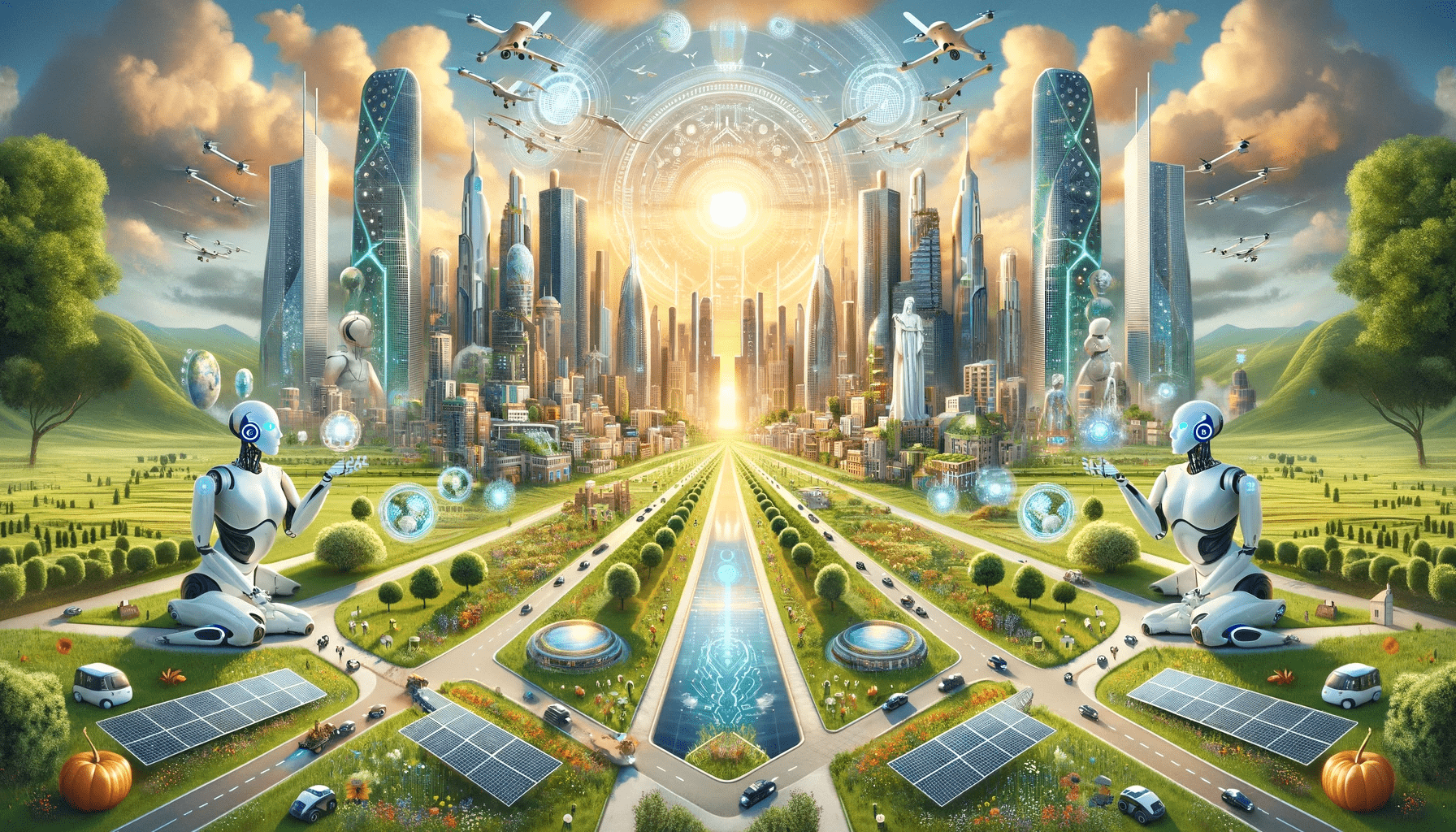Artificial Intelligence (AI) has transitioned from a futuristic concept to a present-day reality, transforming our world at an extraordinary pace. This once-fictional artificial intelligence technology is now a crucial part of our daily lives, industries, and societal infrastructure. While AI’s vast potential promises a new era of innovation, it also poses significant challenges that necessitate thoughtful solutions and ethical considerations.
AI-Driven Automation: A Double-Edged Sword
Artificial intelligence algorithms are taking over tasks across sectors, affecting jobs from retail cashiers to radiologists. According to a McKinsey Global Institute report, by 2030, AI could displace up to 30% of the global workforce. However, this technological revolution is also driving the creation of new roles, demanding new skills and fostering adaptation to a changing labor landscape. Educational initiatives and retraining programs, such as those supported by the European Union’s Upskilling Pathways, must be designed to prepare the workforce for the demands of an AI-driven future.
Healthcare Revolution: Harnessing the Power of Artificial Intelligence
In healthcare, AI’s transformative impact is evident in groundbreaking developments in disease detection and drug discovery. Google’s DeepMind AI‘s breakthrough in protein folding, for example, has the potential to revolutionize drug discovery and disease understanding [source: Nature]. However, AI‘s use in healthcare raises ethical concerns, particularly regarding data privacy and algorithmic bias. Instances like the racial bias found in an algorithm used by a major healthcare provider in the US highlight the need for transparency, accountability, and robust ethical frameworks in AI development and deployment.
Smarter Cities: AI for Urban Planning
Artificial Intelligence is revolutionizing urban planning, optimizing everything from traffic flow to energy use, focusing on sustainability and improved quality of life. In Copenhagen, AI is being used to synchronize traffic lights with the flow of cyclists and pedestrians, reducing congestion and pollution [source: City of Copenhagen]. This application of AI in urban settings underscores the importance of technology in achieving environmental goals and enhancing urban livability. AI is transforming cities, whispering efficiency into traffic lights, guiding waste trucks on silent symphonies of optimized routes, and predicting infrastructure usage. Amsterdam’s garbage dances to AI‘s tune, while Singapore’s public transport beats pulse with the city’s rhythm.
Climate Change: AI for Disaster Preparedness and Mitigation
AI’s role in combating climate change is increasingly critical. Advanced climate modeling, like that developed by IBM, helps predict extreme weather events more accurately, aiding in better preparation and response. AI also contributes to identifying strategies for reducing greenhouse gas emissions across industries, leading to more targeted and efficient climate action plans [source: IBM Research].
Beyond Deepfakes: Navigating the Ethical Landscape
The rise of AI-generated deepfakes is a pressing concern, challenging the integrity of information and public trust. However, these hyper-realistic fake videos are just one aspect of a broader ethical landscape that includes data privacy, algorithmic bias, and accountability. Developing robust legal frameworks and fostering international cooperation are imperative to ensure the responsible development and deployment of AI.
Increasing Equity Globally with Artificial Intelligence
AI’s global impact is diverse, reflecting socio-economic disparities. While the US and China lead in AI innovation, developing countries are finding unique applications for this technology. In Africa, companies like Zipline use AI-powered drones to deliver medical supplies to remote areas, demonstrating how artificial intelligence can increase access and equity [source: Zipline].
The Future of Artificial Intelligence: Stay Informed, Get Involved
Public awareness, education, and engagement are crucial as AI reshapes our world. Staying informed about AI’s advancements and implications empowers individuals to participate in meaningful discussions and make informed decisions about AI’s role in society. This dialogue is essential for ensuring AI‘s development is ethical, responsible, and beneficial for all.


